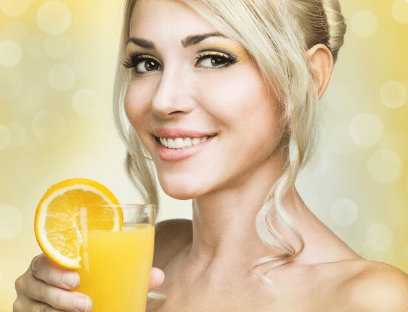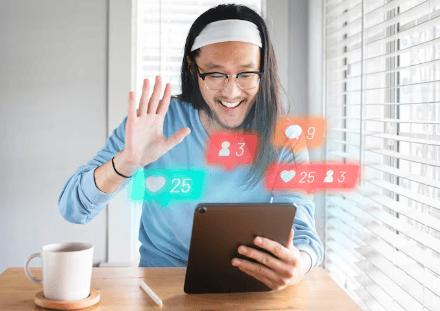In 2025, platforms like TikTok, Instagram, and YouTube have become go-to sources for wellness advice. From detox drinks to hormone hacks, millions of users are now getting their health information in short, visually engaging clips—often delivered by influencers who feel more relatable than traditional experts.
The appeal is obvious: viral health content is quick, trendy, and often promises rapid results. Whether it’s a fitness tip, a smoothie recipe, or a mental reset method, these snippets are designed to be shareable and easy to try. But as this content spreads faster than ever, so does misinformation.
Many of today’s most viral health claims lack scientific backing or are taken out of context. What works for one person may not be safe or effective for another. That’s why, in the age of social media health advice, learning how to separate fact from fiction has never been more critical.
This guide dives into popular trends, what science says about them, and how you can protect your health while staying curious.
Types of Health Claims That Go Viral
In 2025, viral wellness advice often falls into a few repeatable categories—many of which trend across TikTok and Instagram with millions of views. While some offer genuine benefits, others blur the line between helpful and harmful.
1. Diet and Detox Trends
Quick fixes for weight loss and “cleansing” the body are consistently popular. The “internal shower” drink (chia seeds, lemon, and water) went viral for its supposed digestive benefits, while celery juice continues to resurface as a miracle detox. These trends often promise results with minimal effort—making them irresistible, even when science is shaky.
>>Related: Latest Celebrity Diet Trends of 2025
2. DIY Skincare Hacks
Home beauty tips like applying toothpaste to acne or using lemon juice as a brightener are often shared as budget-friendly solutions. However, dermatologists warn that such DIY skincare can disrupt the skin barrier or cause irritation.
3. Mental Health “Hacks”
From “bed rotting” (staying in bed all day for mental reset) to dopamine detoxes (avoiding stimulation), mental wellness shortcuts dominate social media. While these ideas may start meaningful conversations, oversimplifying mental health can be risky without clinical context.
4. Supplements and Biohacking Fads
Whether it’s chlorophyll drops for glowing skin or mushroom coffee for focus, supplement trends are booming. Biohacking—once fringe—is now mainstream thanks to influencers promoting nootropics and wearable tech.
Understanding these patterns helps you spot the hype and prioritize evidence-based health decisions.
Why Do People Trust Influencers Over Experts?
In the era of TikTok and Instagram, many people trust influencer health advice more than traditional experts. But why? The answer lies in psychology, presentation, and relatability.
Parasocial Relationships and Emotional Connection
One major reason is the parasocial relationship—a one-sided emotional bond formed when followers feel like they “know” an influencer personally. Unlike doctors or scientists, influencers share day-in-the-life content, talk about their struggles, and respond to comments. This intimacy creates a sense of friendship, making their advice feel more genuine and trustworthy.
Relatable Over Clinical
Experts often speak in complex, data-heavy language. Influencers, on the other hand, break health topics down in simple, digestible formats—and they do it while looking like someone you could grab coffee with. That relatability makes their message easier to absorb, even if the content lacks scientific rigor.
Aesthetic Appeal and Engagement
Influencer videos are designed to feel good. High-quality visuals, upbeat music, trendy editing styles, and appealing settings all play into how information is received. This aesthetic polish boosts emotional engagement, which increases trust—even when the claims haven’t been medically reviewed.
Research shows that presentation often trumps credentials in online spaces. That’s why it’s so important to verify health claims, even when they come from someone you admire or follow daily.
The Dangers of Health Misinformation
Health misinformation on social media isn’t just misleading—it can be dangerous, even life-threatening. While viral TikTok and Instagram trends might seem harmless or even helpful, many are based on unverified claims or oversimplified science, and they can have serious real-world consequences.
Delaying or Skipping Professional Treatment
One of the most alarming outcomes is when people forgo visiting a doctor because they believe what they saw online. A viral post promoting “natural cancer cures” or detox smoothies for chronic illness can convince someone to delay diagnosis or ignore professional treatment, leading to worsened outcomes. According to a WHO report, online health misinformation contributed to increased patient hesitation during the COVID-19 pandemic—a pattern still seen in 2025.
Self-Diagnosis and Overconfidence
Apps and influencers often encourage viewers to “listen to their bodies” or “trust their gut,” but this oversimplification promotes self-diagnosing without clinical input. Mistaking serious symptoms for something minor—or vice versa—can lead to unnecessary anxiety, inappropriate treatment, or missed medical issues.
Harmful or Untested Remedies
Trends like lemon juice cleanses, dry scooping pre-workout powders, or drinking borax for detox have gone viral, but they come with health risks. Many involve ingredients that are irritating, unregulated, or even toxic. The FDA and CDC continue to issue warnings against these practices, yet their popularity persists due to influencer endorsements and viral visibility.
Mental Health and Unrealistic Standards
Beyond physical harm, there’s also a psychological toll. Influencers showcasing flawless skin, perfect diets, and extreme routines can create unattainable beauty and wellness standards. This may lead to poor self-esteem, disordered eating, or obsessive behavior, especially among teens and young adults.
Misinformation spreads faster than fact. When it comes to health, the stakes are too high to rely solely on what’s trending. Always consult medical professionals and evidence-based sources.
How to Fact-Check Viral Health Claims
In a world where a single TikTok video can reach millions overnight, it’s more important than ever to know how to verify health claims before acting on them. Viral doesn’t mean valid. Here’s how to stay safe and informed when navigating wellness trends online.
1. Check the Source
Start by seeing where the information originated. Reliable health advice should align with trusted institutions like the NIH, Mayo Clinic, Cleveland Clinic, or peer-reviewed journals. If a post doesn’t cite evidence or refers only to anecdotal experiences, approach it with caution.
2. Use Fact-Checking Resources
Sites like Snopes, Health Feedback, and MedShadow specialize in breaking down viral health trends with a science-based lens. These platforms evaluate medical accuracy and flag misleading or false claims with explanations backed by research.
3. Vet the Messenger
Influencers may be charismatic and convincing, but do they have qualifications? Look for credentials like MD, DO, RD, PhD, or certified health coach status. A lack of any formal health training should be a red flag, especially if they’re promoting products or drastic lifestyle changes.
4. Spot Common Red Flags
Beware of content that promises “miracle” results, offers one-size-fits-all solutions, or uses emotional language like “this saved my life!” without context. The absence of citations or links to legitimate studies is another warning sign.
When it comes to health, always prioritize facts over fads. By taking a few extra steps to verify what you see online, you’re investing in your safety and well-being.
Examples of Debunked Viral Health Trends
In recent years, many health fads have gone viral—only to be later exposed as debunked health myths. These examples highlight the risks of chasing viral wellness hoaxes without evidence.
1. Lemon Juice for Clear Skin

Some influencers promoted lemon juice as a DIY acne remedy, claiming it “brightens” skin and kills bacteria. In reality, dermatologists warn that lemon’s high acidity can burn or irritate the skin, especially when exposed to sunlight, potentially causing chemical burns and hyperpigmentation.
2. Raw Potato Detox
Videos claiming that drinking raw potato juice could “cleanse” the liver or reverse chronic illness gained popularity. However, there’s no scientific support for this. In fact, raw potatoes—especially green ones—contain toxic compounds like solanine, which can lead to nausea, headaches, and even neurological issues in high doses.
3. Ice Baths for Instant Fat Loss
While cold therapy has some recovery benefits, the claim that ice baths “melt fat” is misleading. There’s limited evidence that cold exposure can mildly stimulate brown fat metabolism, but it doesn’t cause significant or immediate weight loss. Overuse can even lead to hypothermia or cardiovascular stress.
4. Celebrity-Endorsed Detox Teas
Numerous celebrities have pushed detox teas claiming to reduce bloating, “flatten the tummy,” or “cleanse toxins.” These teas often act as laxatives and can disrupt electrolyte balance, leading to dehydration. Medical experts widely agree that our liver and kidneys handle detoxing just fine—no tea required.
Just because a trend is popular doesn’t mean it’s safe or true. Stay informed, and trust science over social buzz.
When Is a Social Media Trend Actually Helpful?
Not every viral wellness tip is dangerous—some can genuinely support a healthier lifestyle. In fact, reliable health tips on social media often go viral when they tap into simple, evidence-backed habits.
Take sleep hygiene trends, for example. Influencers promoting reduced screen time before bed, consistent sleep schedules, or blackout curtains are often echoing solid clinical research. Similarly, the rise of walking challenges (like the “Hot Girl Walk”) encourages gentle daily movement—proven to benefit cardiovascular and mental health.
Other helpful viral trends include hydration hacks like adding electrolyte powders to water or carrying aesthetic water bottles for motivation. Journaling prompts for self-reflection and stress reduction, often popular on TikTok and Instagram, also align with well-established cognitive behavioral practices.
So, how do you know when to follow a trend?
- Look for expert support (doctors, psychologists, RDs)
- Avoid extremes or promises of “instant results”
- Trust your body—if something feels harmful or too intense, skip it
In short, if a trend is safe, simple, and backed by science, it might be worth trying. Just be sure to stay critical and consult professionals when in doubt.
FAQs: Social Media Health Trends Explained
Can I trust TikTok for medical advice?
TikTok can be a great place to discover wellness tips, but it’s important to be cautious. While some licensed professionals post credible content, others share unverified advice for views. Always fact-check viral advice against trusted sources like the CDC, NIH, or Mayo Clinic, and speak with your healthcare provider before trying anything new.
What’s the safest way to evaluate a health trend?
Start by checking the credentials of the person sharing the tip. Are they an MD, RD, or licensed therapist? Then, ask: Does the trend seem too good to be true? Are there peer-reviewed studies or medical sources backing it up? If not, it’s best to proceed with caution.
Why do false health tips spread so fast online?
False information often spreads faster because it’s catchy, emotional, or promises instant results. Algorithms on TikTok and Instagram reward engagement, not accuracy. That’s why viral myths—like detox teas or DIY skincare hacks—gain momentum even when they lack evidence.
Should I follow influencer nutrition or fitness plans?
Only if the influencer is certified and their plan is evidence-based and safe. Remember, what works for one person may not work for you. Avoid rigid meal plans, extreme diets, or supplement regimens without consulting a licensed dietitian or physician.
Conclusion: Think Before You Share
In today’s digital world, not all viral health content is harmful—but it’s not always helpful either. With the rise of influencer-driven trends, it’s more important than ever to pause and question what we see online. Evaluating health claims before acting on them can protect your well-being—and that of others.
Whenever possible, turn to trusted medical sources like the CDC, WHO, or peer-reviewed research, and consult licensed professionals for personal advice. Before you share that next trending health hack, ask yourself: Is this safe? Is it credible?
By being more mindful, you can stay safe online and help create a healthier, more informed digital space for everyone.
